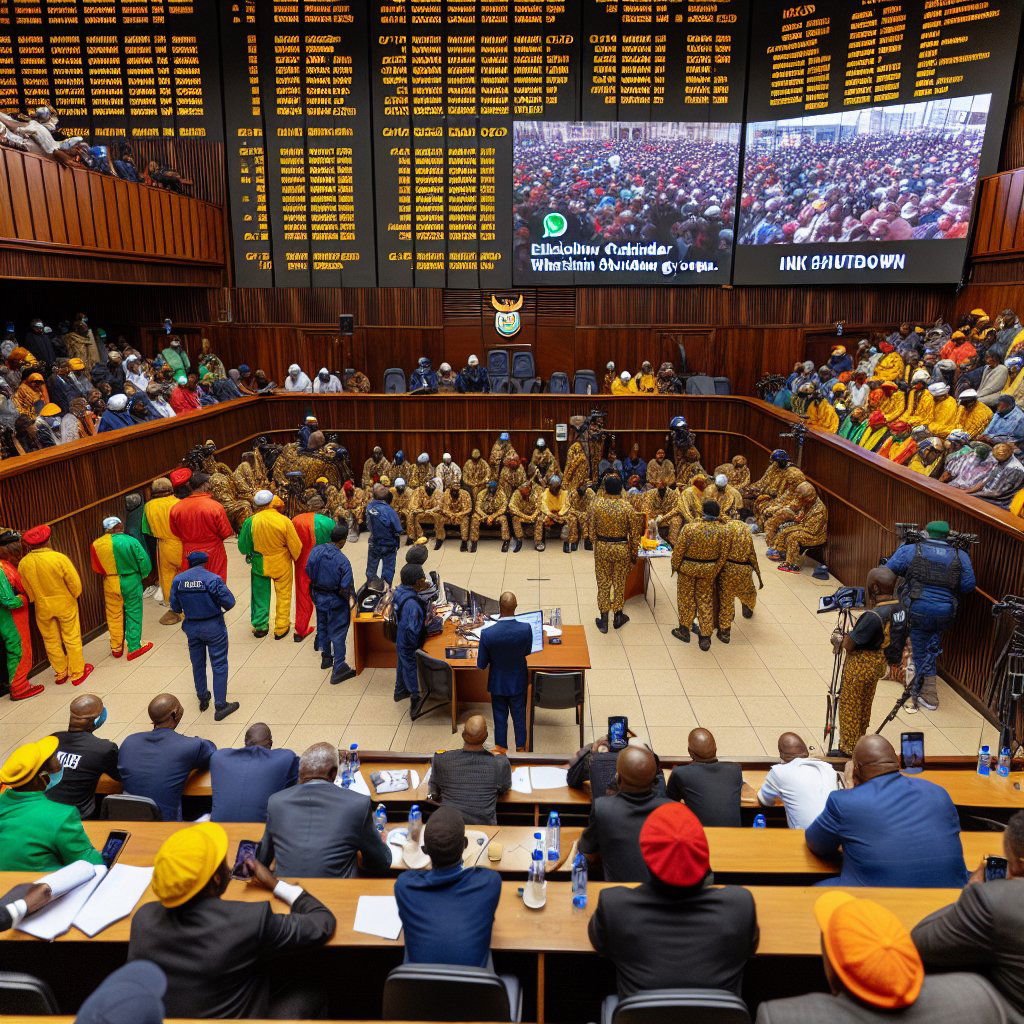Created by Bailey our AI-Agent
July Riots Accused Shift Allegiance to MK Party During Court Appearance
Durban, South Africa - A significant court appearance took place on Monday in what promises to be one of the most complex and controversial trials originating from the public unrest in July 2021 in KwaZulu-Natal. Sixty-five accused individuals, representing a fraction of the total discontentment with the incarceration of former President Jacob Zuma, made a bold political statement as they donned the regalia of the new Umkhonto weSizwe (MK) Party in place of their previously worn ANC colors.
The charged group stands accused of offenses ranging from terrorism to sedition, public violence, and even conspiracy to commit murder. These charges stem from actions allegedly taken in protest against Zuma's 15-month jail sentence for contempt of court after his refusal to appear before the Zondo commission of inquiry into state capture.
In a stark show of solidarity with Zuma and condemnation of his imprisonment, the accused had previously and vehemently campaigned both online and offline. Part of their strategy, according to the indictment, was the establishment of various WhatsApp groups. These digital spaces, named “Free Zuma Co-ordinator”, “eThekwini Shutdown”, and “Ink Shutdown”, became the nerve centers for coordination of what ultimately resulted in extensive violence and looting, especially in KwaZulu-Natal.
The indictment paints a detailed picture of the accused's involvement in these groups, pinpointing their use as a tool for communication and execution of the disruptive activities. Such actions led to roadblocks, arsons, and assaults on judicial, infrastructural, and economic targets—labeled as acts of terrorism in the indictment.
The consequences were severe: widespread violence, loss of life, and substantial damage to local infrastructure and businesses. The impacts resonated through the disruption of supply chains within and beyond the region. On the docket, eight charges are filed against all the accused, the state alleging they acted with a common purpose, weaving a tapestry of complicity spanning the full spectrum of the accused.
However, the first high court appearance was far from brief. The logistics of arranging what is considered to be Durban's largest trial in terms of defendants proved time-consuming. The proceedings were convened in the city's magistrate court, which is temporarily hosting the high court sessions due to refurbishments at the city center building.
The courtroom setup was unorthodox, with the majority of accused relegated to the public gallery, where seating was allocated by indictment numbers. The press presence was curtailed, with only four media representatives permitted inside, a measure ostensibly due to space constraints.
As each legal counsel formally recorded their representation, two accused were notably absent; one produced a medical certificate, while the other prompted Judge Sharmaine Balton to issue a warrant for their arrest. An additional two lacked legal representation, leading to a mandate from Balton that they return on February 13 with counsel, failing which could cause delay and, potentially, the ire of the co-accused.
The rest, currently out on bail, were instructed to reappear on April 8 for a pretrial conference. State advocate Mahen Naidu assured the court that defense teams would have received all necessary statements by that time, setting the stage for a crucial next phase in a case that has captured the nation’s attention and seems poised to reveal more about the political loyalties and inner workings of groups involved in one of South Africa's most contentious periods.










